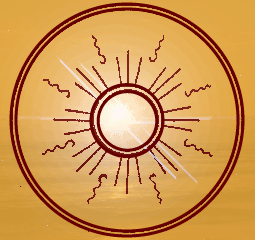All objects in nature are created in time, developed in time, and destroyed in time. With this understanding, we are able to highly value a scientific system that can measure the effects of time. Such a system was developed over 5000 years ago in India and continues to evolve; it is called Jyotisha, or Vedic astrology.
This greatly respected and widely practiced system of astrology is a fundamental part of India’s rich cultural tradition. Yet it has only recently found acceptance in the West, following the enormous popularity of hatha yoga and the growing emergence of teachers of Vedic philosophy and spirituality. Like hatha yoga, ayurveda, and various forms of meditation, Jyotisha originates from the Vedas, or the spiritual texts of India. It is, in fact,a Vedanga-a limb of the Vedas.
A good astrologer perceives a person’s life experience by noticing how planets assert their influences on that person. Like people, the planets each have a unique, multifaceted personality. Just as we relate to each person in our lives in a singular way, so the planets relate to us. Through a horoscope, we can see the patterns of these rich relationships. We can begin to identify the lessons each planet offers us. This helps illuminate our lives, bringing us more clarity, greater insight, and ultimately a freedom of will that might otherwise elude us.
The fine line between destiny and free will becomes much more easily traversed through Jyotisha. This ornate system helps us to see what we can change in life and what we likely cannot change. It gives us the ability to choose to view our circumstances in new and perhaps broader ways. Jyotisha gives us an opportunity to affect our fate through awareness.
